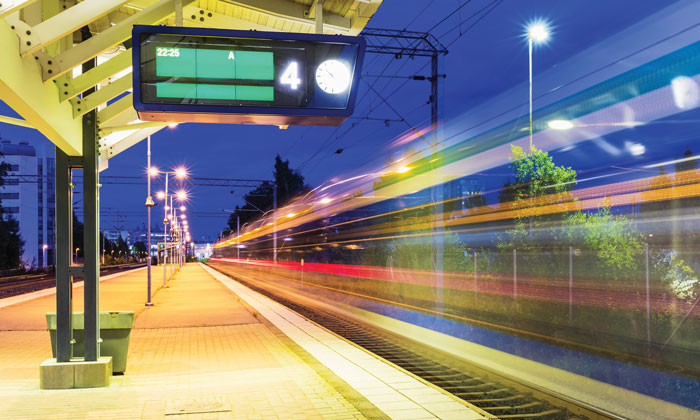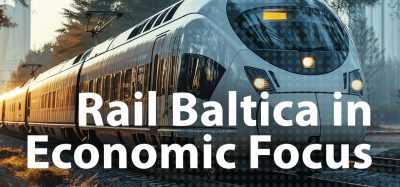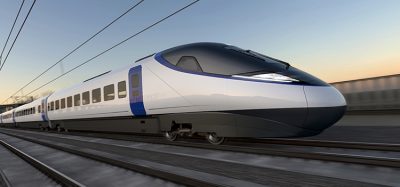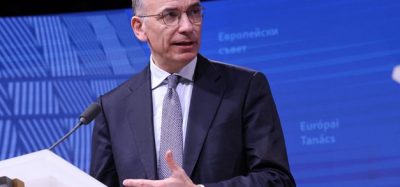After 10 years, IRIS enters a new phase
Posted: 19 March 2017 | | No comments yet
Ten years since the IRIS Certification™ was established, it is now a well-known business management system in the rail sector that enables any railway component supplier to meet globally recognised levels of quality for its railway products. IRIS Senior Manager, Angela de Heymer , outlines the latest developments of the standard that has issued more than 1,500 certificates across five continents.


The entire system is comprised of an international standard based on the principles of ISO 9001; a unique assessment tool (assessment sheet) with maturity level and scoring; an evaluation process with an assessment guideline to be performed by IRIS-approved global certification bodies; and finally, a web-based IRIS Portal (database) and Audit-Tool (software).
The IRIS Rev.02.1 and Addendum 2015 are currently applicable and form the technical basis for IRIS certifications.
Audits are performed worldwide by one of 260 approved auditors – covering 26 languages – from 16 IRIS-approved certification bodies. All IRIS-approved auditors are centrally trained and validated by the IRIS Management Centre to ensure the same level of qualifications across certification bodies and countries. Furthermore, the certification bodies are monitored on a regular basis through witness and office audits.
The technical evolution of IRIS
The development of the technical basis for IRIS began in 2004 and was based on the following founding goals of the scheme:
- Improvement of product quality and supply chain efficiency by process improvement and robustness
- Reduction of efforts and costs
- Fair evaluation by independent certification bodies
- Global recognition for and from the rail sector.
Rail specific standards were not covered by the ISO 9001. Inspired by the automotive, aerospace and food sector specific standards, the rail industry decided it was past time for a set of standards and specifications for itself.
In 2008 IRIS Rev.01 was launched. It included maintenance requirements which had been defined over the course of several workshops and brought together maintenance experts from the industry. Furthermore, following a decision by the UNIFE Presiding Board, the new IRIS Rev.01 was also applicable to signalling companies.
This revision follows the continued evolution of IRIS in defined steps by extension of activities – i.e. the design and/or development and/or manufacturing and/or maintenance and scopes (rolling stock and signalling).
Following 18 months of dedicated work shops and input from operators, the next technical evolution – IRIS Rev.02 – was launched in June 2009 with the following improvements:
- Strengthened specific rail areas (First Article Inspection) – as key areas for the operators – were improved in the requirements
- Nearly 30% of the existing maturity levels of the questionnaire were strengthened, in order to allow space for improvement
- ISO 9001:2008 add-ons were integrated
- ISO 9004 recommendations clarified as ‘should’ requirements.
The technical requirements have remained stable and are currently being applied worldwide.
Latest evolution
In September 2015 a new revision of the ISO 9001 was published and all related certificates were for being updated before 14 September 2018.
The IRIS Steering Committee asked the UNIFE Presiding Board to approve transforming the IRIS standard into an official International Standard managed by ISO. This brought official global recognition of the specific business management system principles within the rail sector and wider and quicker implementation in the rail supply chain, which consequently reinforced customer acceptance.
This acceptance came in June 2015 and UNIFE began work with ISO around the following objectives:
- Moving the technical requirements of IRIS to ISO
- Keeping the certification process and the assessment methodology under sector control
- Preparing a new scheme for mid-2017 to guarantee the continuity of the existing certificates.
After analysing the new ISO 9001:2015 requirements; assessing new rail specific needs; identifying obsolete requirements; under standing the new ‘high level structure’ of the management system standards of ISO; and taking account of feedback from key stakeholders, the new version of an IRIS standard was ready for release in early-2016.
Today, ISO/TS 22163 is the official identification of the Rail Quality Management System. It is important to note that, while the requirements fall under ISO purview, the certification process and assessment methodology, which will evolve in line with ISO/TS22163, will still be managed by UNIFE.
The main improvements of the assessment methodology in this new system focus on the following:
- Customer perceptions: through identification of key stakeholders, clearer measurement definitions and customer feedback
- Performance evaluation: through deeper evaluation of defined processes regarding their performance. The evaluation is based on the analysis of the process key stakeholders
- Enabler evaluation: through an improved assessment sheet.
The IRIS Rev. 02.1 version will remain valid until further notice. The expected timeline is connected and means that all IRIS audits (certification, surveillance and re-certification) will be carried out according to the current rules.
As the IRIS certification is now connected with the ISO certification, all current IRIS certificates will remain valid only until 14 September 2018, as will be the case for the ISO 9001.
It will be crucial to analyse the impacts of these revisions on the management systems of certificate holders, to ensure that the new requirements can be safely and consistently implemented.
The evolution of IRIS over the past 10 years shows how important it is for the rail sector. One of the key boosters of quality is a well maintained business management system that is supported by sustainable processes, which leads to improvements throughout the supply chain, better customer satisfaction and a more secure sector.
Biography
Angela de Heymer has been IRIS Senior Manager at UNIFE – The European Rail Industry – since June 2012. She has participated in the core team for the development of the latest requirements and also in the working groups for the improvement of the IRIS Certification™ assessment methodology and certification process. Previously, Angela worked at Bombardier Transportation in the area of quality management and represented the company in IRIS-related working groups. Figure 1: Worldwide distribution of IRIS certificates Figure 2: Concept assessment methodology






